Loneliness is on the rise in Ireland. In a primary study undertaken by the European Commission, over 20% of respondents in Ireland reported feeling lonely - the highest level in Europe. The fear of loneliness is more than just a bad feeling, it can be catastrophic to your health and wellbeing. When it comes to talking about mental wellbeing, men face societal gender pressures to 'put on a brave face', and not talk or seek professional help. But this is changing. In April 2023, the Swedish Presidency held the very first high-level meeting in the European Union to discuss loneliness to gain a better understanding as to how policy at an EU, national and local level could address the issue.
At the local level, Men's Sheds - a grassroots initiative that supports men to maintain and improve their wellbeing on their own terms and within their own communities – are taking steps to offer a safe place for men to gather and talk together to break the stigma. In the rural town of Moate, in the heart of Ireland, EuroHealthNet’s Caoimhe Kelly uncovers the inspirational stories behind this movement and explores how it has become a beacon of support, hope and leisure for many in the area.
Approaching the Men's Shed in the small town of Moate, I am struck by the modest frontage of a place that has leant itself as a safe refuge to countless conversations from across this part of Ireland. Stories of hardships, but also of growth and empowerment, and it is this that reminds me of why I am here. In a post pandemic era, have we really lost the art of conversation? Or the ability to listen and encourage people, particularly men, to have open, but at times difficult, conversations?
The Sheds
“Sit down and have a cup of tea” - the welcoming words of Patsy McCormack - a prominent leader within the Moate Men's Shed movement. Entering the shed, he points to the tearoom where multiple cups, of all different colours, are placed upside down above the fridge. “Go and have a look around,” he insists. With the aroma of freshly cut wood and the crunch of sawdust underneath my feet, I enter a workshop complete with stacks of tree trunks and scattered tools. Patsy shouts over “you know, we have one strict rule here, you have to sit down and have tea and a chat” - words that immediately make me feel at home. 'Home' is the premise of the Men's Sheds, a premise that promises a welcoming, open space for all men to come together to talk, create and connect.
But what is a Men’s Shed? “A Men’s Shed is a community-based project where men come together to learn new skills and build long lasting friendships. They meet to chat, to sit down together and have a cup of tea or coffee” explains McCormack. The Men’s Shed Movement started in Australia in the 1990’s and is gradually spreading around the world. Members (otherwise known as “Shedders”) meet twice a week and “engage in activities such as woodwork, gardening, carpentry, community work, and some have special interests.” As I look around, I see picture frames of people partaking in various activities from past and present and think of the history this building must hold and stories and friendships held within the community.
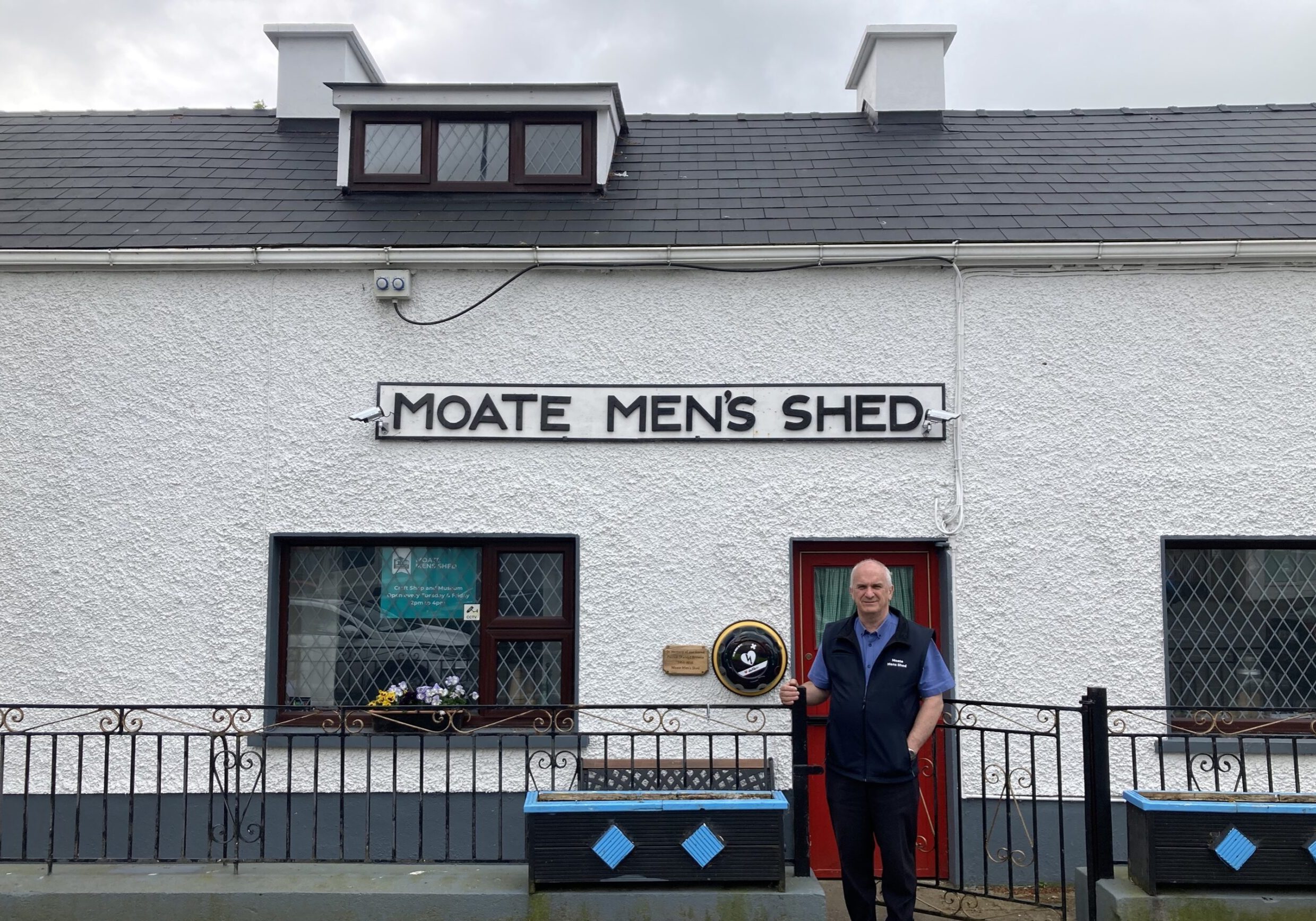
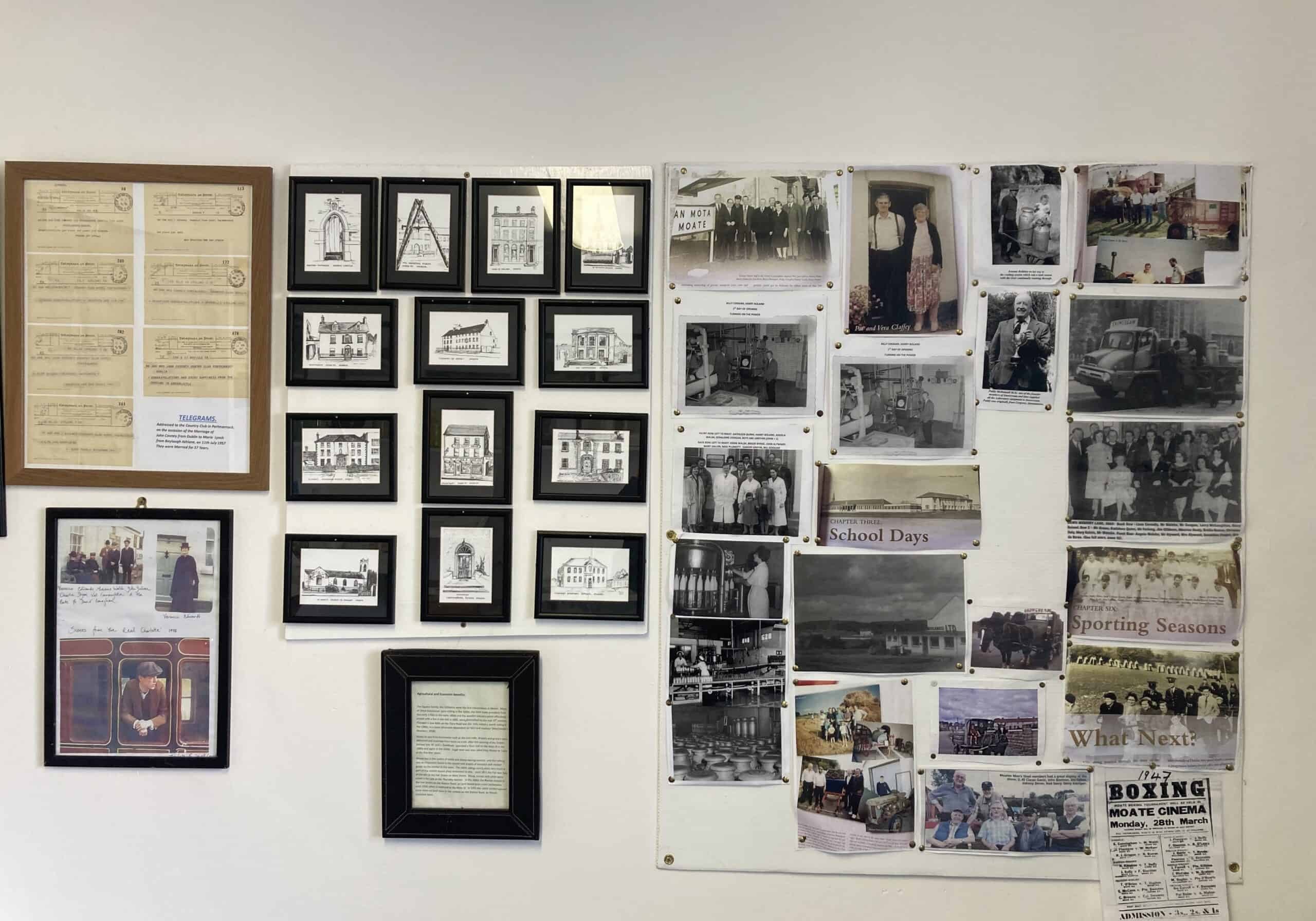
Breaking down barriers
Traditionally, men face societal expectations that discourage open discussions about mental health. Men over 65 often find themselves categorised as a 'hard-to-reach' group. “Men don’t speak face to face, they speak shoulder to shoulder” says Patsy - reflecting the motto of the Men's Sheds. He believes the main challenges for addressing men’s mental health are deeply rooted in society, where “it’s in men’s DNA,” to avoid engaging in conversation around mental health as it is “seen as a sign of weakness.”
Drawing on his experience, Patsy mentions that using the term "mental health” can create a barrier for men to talk due to the stigma surrounding it. He explains how the Moate shed uses a different approach, “We all know it is mental health, lots of us are comfortable with that. But from my experience men will run away from the term mental health, while if you ask are you feeling down, absolutely, they’ll engage with you.”
“If you put a sign over the door which said improve your mental health over the Men’s Sheds, you would have no one coming.” He explains the Men’s Shed movement enables a non-clinical, informal, setting where men come together to learn, share skills and make long lasting friendships, whereby “mental health acts like an undercurrent.”
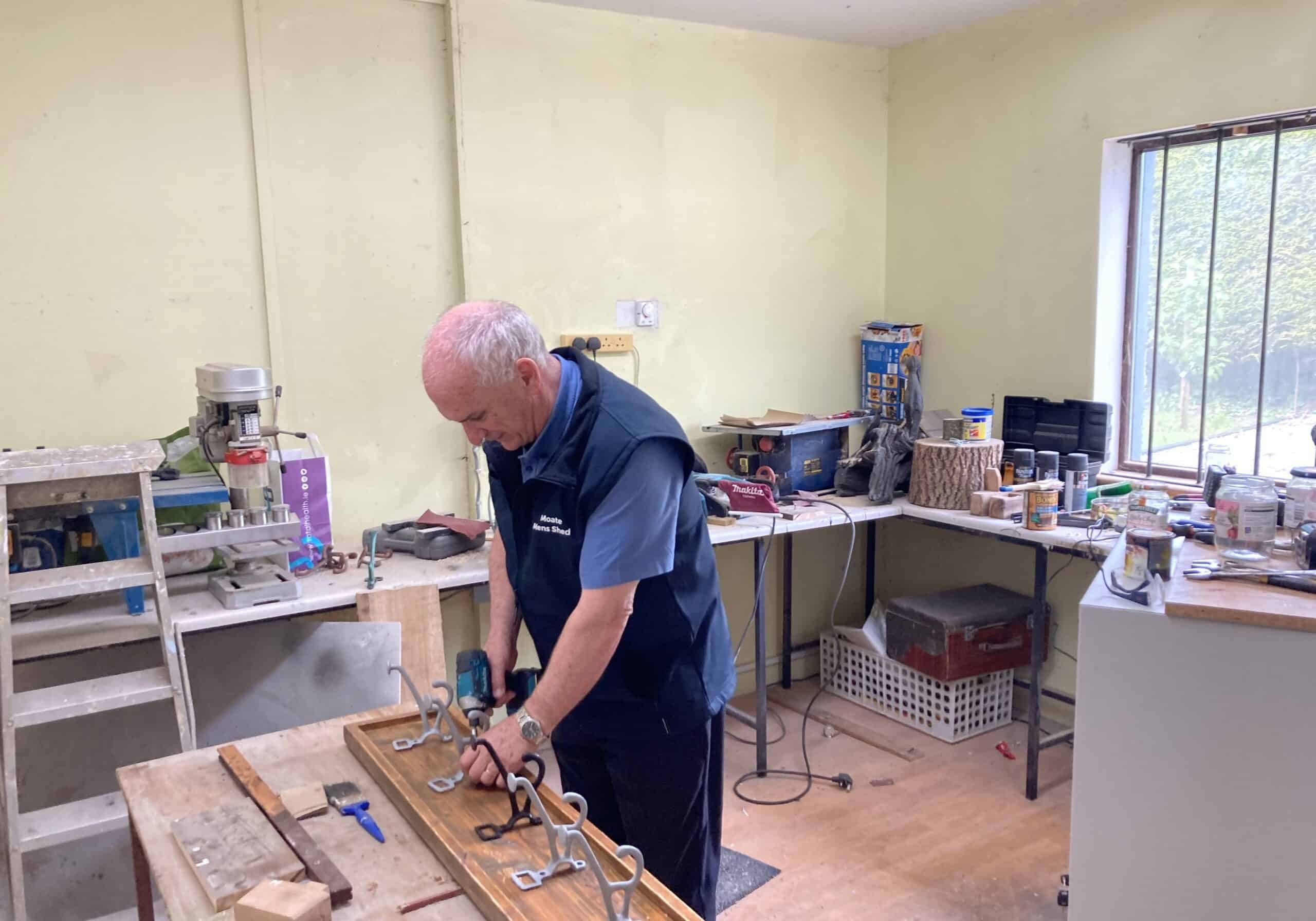
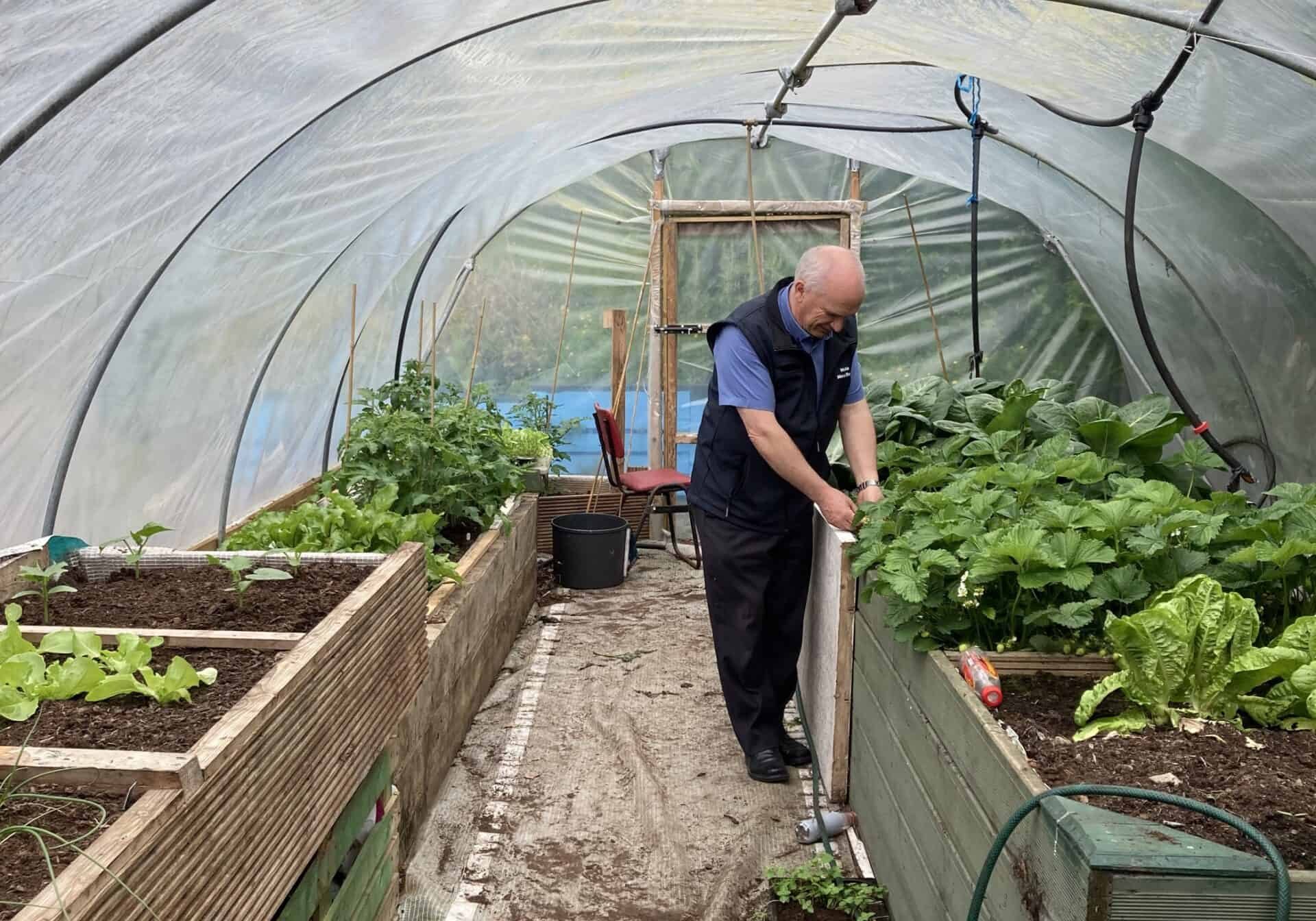
Accidental conversations
Engaging in purposeful activities within the Men’s Sheds plays a pivotal role in improving and maintaining mental health. Conversations around wellbeing act as an undertone and slip out “accidentally” as Patsy put it, where engaging in activities create a relaxed space to talk. Members can take part in a diverse range of community activities, upskilling in areas such as woodwork, walking football, gardening, art classes, and restoration work, among others.
“I have witnessed this first hand so many times. We have workshops in our shed where we do different activities, which lead to accidental conversations about participants' lives. They just get into a zone of talking and everything starts to flow.” Not only do activities offer a sense of accomplishment and foster a positive mindset, but allow space for building friendships to combat feelings of isolation or inadequacy. It is not all about work though. “We never finish the day without a cup of tea and a chat.” As I grasp my cup of tea, I cannot help but feel I am part of it.
Alleviating social isolation
Combatting feelings of isolation are crucial to prevent loneliness and to maintain one's mental wellbeing, as seclusion can have a detrimental effect on not only one's mental but emotional and even physical wellbeing. Community initiatives like the Men’s Sheds are effective in alleviating and preventing loneliness.
The members of the Moate Men’s Shed mainly consist of men 65+ years, in retirement age, Patsy explains. He continues to expand on how the COVID-19 pandemic presented a challenging time for his members. “Getting sick with COVID was a huge fear for this age group and some members haven’t returned since the pandemic, despite trying hard to get them back.”

With this in mind, Ireland was recently named as having the highest levels of loneliness in Europe and according to data from ALONE - Irelands national organisation enabling older people to age at home - 36% of older people had not been out socially in more than a month, and 9% had not in more than a year. Older people are continuing to isolate themselves, in part due to lingering fears and anxiety relating to the pandemic, as well as the ongoing cost-of-living crisis.
Professor Roger O’Sullivan, Director of Ageing Research & Development at the Institute of Public Health in Ireland, said "the European Commission findings raised important questions for Ireland as to why it has higher levels of loneliness compared to the rest of Europe. The COVID-19 pandemic, he added, challenged many of the stereotypical views on loneliness but also highlighted the opportunity that now exists to adopt a public health approach to loneliness."
Reflecting on the COVID-19 pandemic, Patsy stresses the importance of community initiatives to support people in times of need and how the Moate Men's shed played a role to alleviate loneliness for its members during this period.
“We were used to a safe environment where we meet a few times a week, and suddenly this disappeared off the face of the earth. It affected some of our members quite seriously.” The Shed did its best during this time where they “kept in contact with all members” says McCormack. “When restrictions began to lift, we allowed members to go back in ones and twos and this was really helpful.” The Shed acted as an outlet and safe space where members could spend time outdoors gardening, thereby securing some feelings of normality in unprecedented times.

Rebuilding lives
Patsy highlighted the need for intervention in rural communities to tackle isolation, specifically for older groups, “people are becoming more and more isolated, as outlets to socialise in times gone by have disappeared.” In a fast-changing society, he stressed that ways of communicating are changing, with the use of modern technologies. “People are being left behind. Social media is fantastic, but the digital divide is growing as systems have not accommodated for older people.”
One particular story stands out for Patsy, as he reflects on the profound effect the organisation can have on people's lives.
“This particular gentleman moved to Moate from Dublin. He moved close to retirement and a short time later he sadly lost his wife. He knew no one in this town and felt completely lost, but soon found solace with us. He has learned so much and will openly tell you if it were not for the Men’s Shed, he does not know where his life would have led him.” This story is a reminder of the power of community and how it acts as a remarkable force to bring people together, foster connection, and create a sense of belonging. Patsy smiles and proudly affirms “We were the key for him in rebuilding his life.”
Power of community
When it comes to maintaining wellbeing, the power of community is everything - providing a sense of belonging and support. The Shed based in the centre of Moate, what once used to be a market town, acts as a centre for nearby local links, welcoming members from neighbouring areas. Involved with many initiatives in the town, members have an inclusive approach, collaborating with other groups within the community, including the local primary and secondary schools, Dun na Sí amenity park and the Tidy Towns initiative to name a few.
Patsy explains “because of us a number of groups come together” and poses the question “so, why can't they do the same with health?” Emphasising the need to see the involvement of health workers in the community he explains, “men go to the healthcare provider, rather than the other way around.” With men less likely than women to seek help for their mental and physical health, they may already experience adverse health issues which could otherwise be prevented if healthcare professionals were more active in the community. Patsy believes there is a need for and strong potential for a determined health promotion and disease prevention approach in the sheds.
Currently the Irish Men’s Shed movement has a leading initiative called “Sheds for Life” a community-based health promotion programme aimed at supporting the physical, mental, and social wellbeing of Men’s Sheds members. However, Patsy reveals the pilots have only been implemented in 6 Sheds nationally. “There are several thousand men involved in the Men’s Sheds across the country, it is amazing what they might find" this could act as an effective initiative for preventing mental health issues and improving overall wellbeing.
Not only could the scheme be great for the members of the shed but for the wider community. Patsy suggests how the Shed could act as a hosting facility for health promotion activities. “We could easily pick up people (without joining the shed) and push the initiative out into the community and beyond, to make it inclusive.”

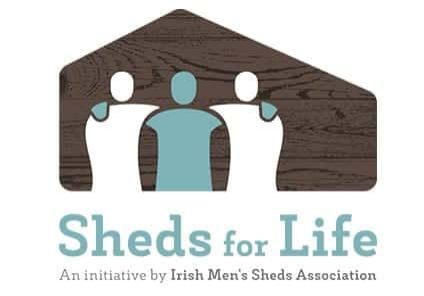
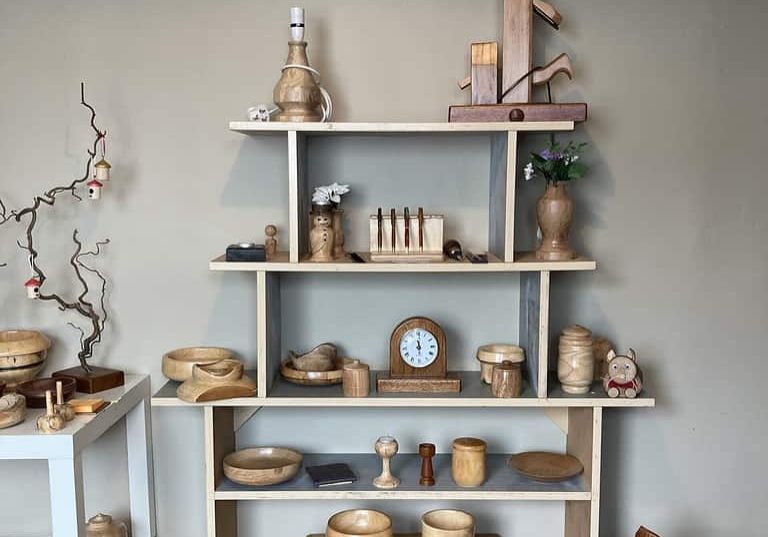
It's good to talk
Patsy finishes with an important message for you, the reader. “Don’t hide from your mental health, talk to someone, find a Men’s Shed if you are of that ilk, and be comfortable with how you feel.”
Throughout our visit, it is evident that Men's Sheds address various aspects of mental health, allowing safe spaces for men to engage in conversations, maintaining friendships, upskilling, tackling loneliness and maintaining a sense of belonging all whilst having fun and in turn improving wellbeing.
Let us continue to support and champion the incredible work being done by Men's Sheds in Ireland and worldwide, as we strive to create a more compassionate and mentally healthy society for all.
About the Institute of Public Health
The Institute of Public Health informs public policy to support healthier populations in Ireland and Northern Ireland. It works with a variety of stakeholders, including healthcare professionals, community organisations, and policymakers at local and national level to ensure that public health policies are equitable and based on the best available evidence.
Resources
For more information about the Institute of Public Health’s work on loneliness visit https://publichealth.ie/loneliness

Caoimhe Kelly
Caoimhe is Communications Assistant at EuroHealthNet and holds a BSc in Public Health from University College Cork, with an MSc in Social Policy and Public Health from Utrecht University. She has a keen interest in health promotion and disease prevention and works to contribute to a healthier and more equitable Europe.

